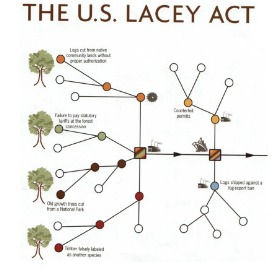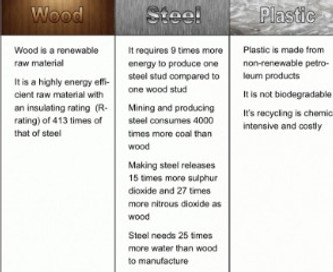
ENVIRONMENTAL
ENVIRONMENTAL POLICIES AND POSITIONS
We fully embrace and endorse IWPA – International Wood Products Association sensible positions on the important issues of Illegal Logging, Certification and Purchasing Policies, which we reproduce below for the sake of clarity. But we also want to be upfront and state that we strongly reject the attempts by certain radical environmental groups to portrait the wood industry as villains against nature. That is wrong!
While we admit the negative pursuits of some greedy companies around the world, we feel that they should be punished according to the laws of their countries and banned entirely from doing business. But it must be clear that this is not the rule, much to the contrary, and many good companies are creating jobs and contributing very positively to diminish poverty in tropical countries across the globe. Poverty is the worst enemy of a sustainable environment. “Green” organizations should work with the industry and help us develop suitable mechanisms to ensure the continued use of wood products. To work against the wood industry just for political reasons (all business is bad for people, some seem to believe) is also wrong.
Wood is the most environmentally friendly material available to mankind. Wood is natural, recyclable, renewable, sustainable and holds CO2, besides using a lot less energy to produce than any other material. As such, we are proud to promote the use of more wood as a means to keep the value of this wonderful resource and prevent the conversion of forests into pasture or extensive agriculture. Many people fail to realize that old trees no longer produce oxygen, and therefore could be converted into wood products. Obviously, those exceptional specimens who provide intangible value to humans should be preserved and revered.
We invite all well-intentioned groups and organizations to reach us and other like-minded companies to cooperate and work together, provided that they do not try to impose their views on the solutions towards wood sustainability.
Patrick Moore, co-founder of Greenpeace talks about the importance of wood, and the responsible forestry in the efforts of creating sustainable conditions on Earth.
Why wood is greener... Did you know this about wood?
EARTH FRIENDLY
Wood is renewable, sustainable, recyclable, durable, and biodegradable. Steel and plastic, on the other hand, are made from non-renewable sources.
STRONG INSULATION VALUE
As an insulator, wood is four times more efficient than an equivalent thickness of cinder block; six times more efficient than brick; 15 times more efficient than concrete, 206 times more efficient than steel, and 1,770 times more efficient than aluminum.
MORE ABUNDANT TODAY
The US has for more trees today than it did in the 1920's - even though the population has increased by 143%; 97% of all homes are framed with wood and wood products, and use of wood per capita in North America exceeds any place else in the world.
WOOD PRODUCTS SAVE PETROLEUM
Using pressure-treated wood instead of steel, concrete, or plastic saves as much as 32 million barrels of petroleum each year.
MANUFACTURING PROCESSES USE LESS ENERGY
Wood products make up 47% of all industrial raw material manufactured in the U.S., yet consume only 4% of the energy needed to do that. Comparing total energy costs of other building materials - the costs to acquire the raw material, transport it, process it into a useful product and then use it - wood outshines its competitors. For example, steel wall studs require almost nine times more energy to produce than wood studs.
WOOD PRODUCTS HELP PROVIDE CLEANER AIR AND REDUCE GLOBAL WARMING
Our lumber products are produced from plentiful, fast-growing species of trees from managed forestland. Young-growth trees remove millions of tons of carbon each year, which helps reduce potential impacts of global warming.
LIFE-CYCLE ANALYSIS SHOWS MANY ADVANTAGES OF WOOD COMPARED TO MAN-MADE MATERIALS
Environmentalists use life-cycle analysis to measure the environmental impact of a product. The life-cycle analysis of pressure-treated wood shows that it's environmentally superior because it uses renewable resources and recycled material, requires little energy to produce and distribute, and produces little waste.

Which one is Greener?
The Carbon Cycle


